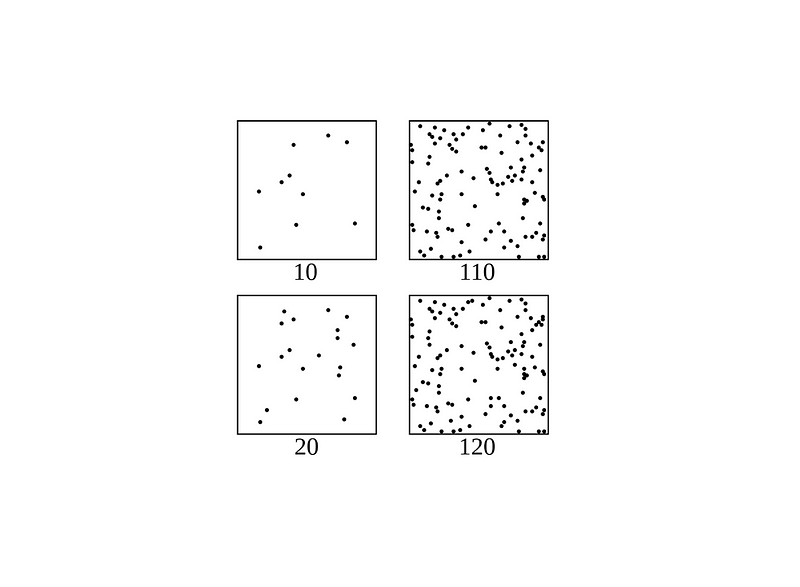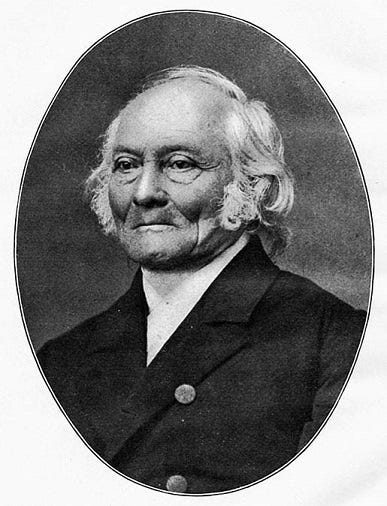Understanding Why Increased Earnings May Lead to Diminished Satisfaction
Written on
Chapter 1: The Paradox of Earnings and Satisfaction
Have you ever realized that greater earnings often result in lower satisfaction? This concept extends beyond financial gain; it can also apply to social media interactions, sports achievements, delicious meals, and more. It's a profound observation that invites inquiry. What lies behind this phenomenon?
Science provides clarity. To unpack this, we must first grasp the fundamental components of what ‘earning’ entails. This term represents a complex interplay of simpler elements, necessitating a foundational understanding before delving deeper.
In this discussion, I will outline a brief history of key figures who explored this topic, delve into the core phenomena related to our main inquiry, and ultimately seek to provide a comprehensive answer. Gaining insight into these mechanisms may empower you to make more fulfilling life choices. Let's begin our exploration.

The Just-Noticeable Difference Explained
Ernst Weber, a German born in 1795, was significantly influenced by notable physicists during his education. His scientific curiosity led him to become a physician specializing in anatomy and physiology. Weber's experiments revealed that humans can perceive certain changes in physical stimuli but often overlook others.
Through his meticulous work, he introduced the concept of ‘Just-Noticeable Difference (JND)’. He stated:
“..in observing the disparity between things that are compared, we perceive not the difference between the things, but the ratio of this difference to the magnitude of things compared.”
- Ernst Weber
To illustrate, consider holding two weights. Weber discovered that you would only recognize a weight difference if it exceeded 8–10%. For example, if one weight is 100 grams and another is 120 grams, you would notice. However, if you held 900 grams and 920 grams, the difference might go unnoticed despite being the same.
Weber concluded that the JND varies across different sensory modalities.
The Logarithmic Relationship of Perception
Gustav Fechner, born in 1801 in Germany, was Weber's student and further developed these ideas. He formulated Weber's findings into a mathematical relationship, now known as “Weber’s Law”:
?R/R = k
Where ?R indicates the stimulation required to create a JND, R is the existing stimulation, and K is a constant unique to each sense.
Fechner's continued research revealed that Weber’s Law did not apply at the extremes of sensory experience, leading him to the formulation of the Fechner law:
P = K*ln(S/S0)
In this equation:
- P signifies perceived intensity,
- S is the stimulus currently experienced,
- S0 is a reference stimulus,
- K is an empirically determined constant,
- ln is the natural logarithm.
Fechner's work established a logarithmic relationship between stimulus and perception, contributing to the emergence of psychophysics, a field dedicated to studying sensory experiences.

Understanding Human Sensory Experience
Consider a dimly lit room where someone lights a candle. Its flame may not be the brightest source, but you notice its illumination. Conversely, in a brightly lit room, the same candle's light may feel less significant. This principle also applies to sound and extends to other senses like touch, taste, and smell.
The Validity of Weber-Fechner Laws
Although Weber and Fechner's work has faced scrutiny, their methodologies highlighted the non-linear nature of human perception. While quantifying satisfaction in relation to earnings is complex, a qualitative understanding emerges from their findings.
The crux of the matter is that humans tend to think linearly while experiencing reality non-linearly. We may assume that more of a good experience will yield proportionately greater satisfaction, but the actual feeling often falls short of expectations.
How This Insight Influences Decision-Making
Recognizing that future experiences may not align with linear expectations can alter our present choices. Individuals who account for this non-linearity might take longer to make decisions, especially in everyday situations.
So, is there a way to balance quick decision-making with deeper insights? Yes, through heuristics—practical, rule-based strategies that yield satisfactory outcomes without requiring excessive cognitive effort. These mental shortcuts help us navigate complexities while considering future experiences.
Heuristics are a familiar part of daily life, often employed unconsciously. However, once I began to consciously develop heuristics informed by past experiences, I noticed positive changes in my decision-making, steering me toward a more fulfilling life.
This video explores why accumulating wealth does not guarantee happiness.
This video discusses the surprising amount of money needed for happiness, which is often less than expected.
References: Ditz and Nieder (research paper), Algom (research paper), Nutter Jr. and Esker (research paper), and Hecht (research paper).
I hope you found this discussion enlightening. If you appreciate this work, consider supporting me by following and sharing.
Further reading that may interest you includes: "Logarithms: The Long Forgotten Story of Scientific Progress," "What Really Happens When You Measure A Coastline?" and "Are We Living In A Simulation?"
You can read the original essay here.